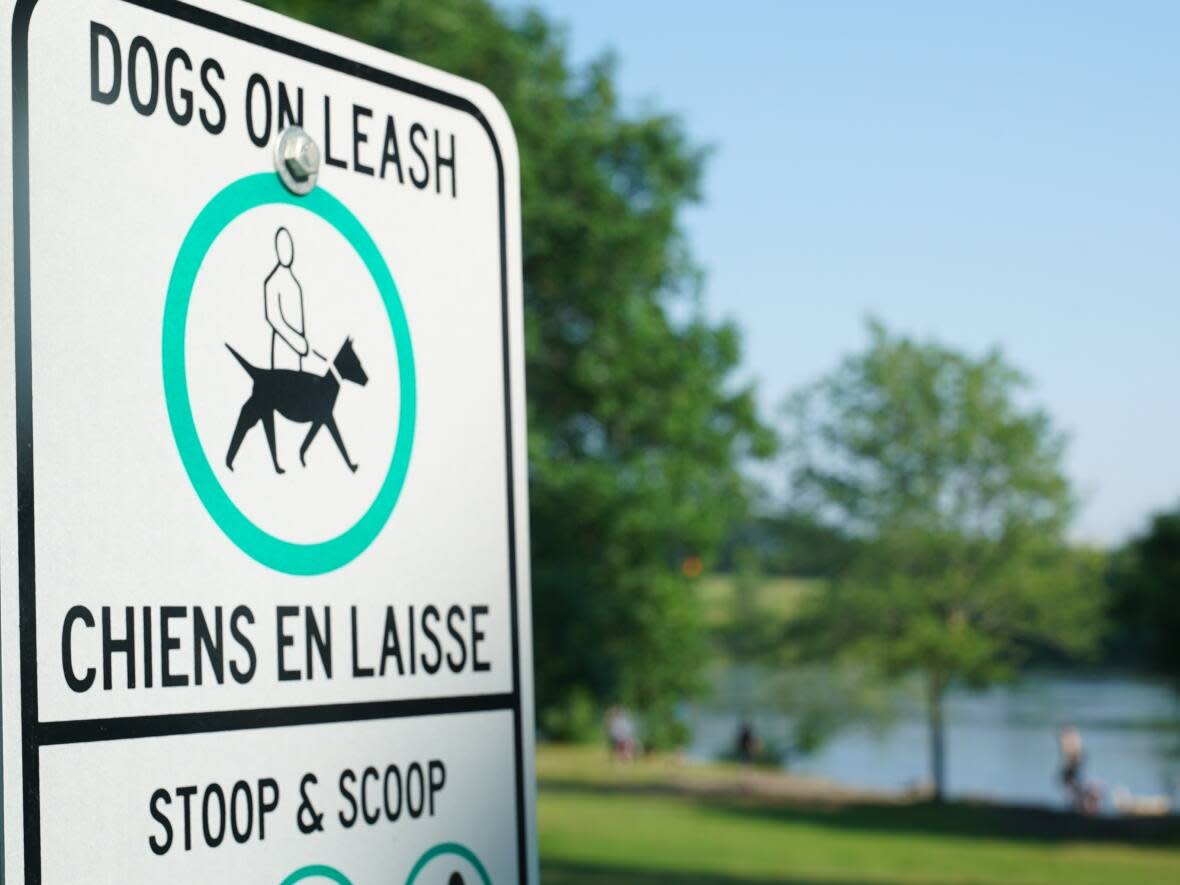Councillors want bylaw crackdown on off-leash dogs

Ottawa city councillors want bylaw to hire more officers to enforce rules in city parks, especially when it comes to dogs running off leash.
The City of Ottawa draft budget adds no new positions for bylaw officers or firefighters for 2023, while increasing the paramedic service by 14 positions. The emergency and protective services committee's portion of the budget was approved Monday, totalling $361 million for operations this year.
Coun. Jeff Leiper from Kitchissippi ward pointed out some dog owners let their pets off leash knowing enforcement in winter, particularly, is low.
"It's not all of the parks in the ward, but [I've got] one or two parks that are awesome parks to enjoy where people's enjoyment ... is rendered inaccessible because of off-leash dogs," said Leiper.
In the suburban ward of Kanata South, this is equally a problem for Coun. Allan Hubley, who pointed to park garbage cans overflowing from people who have left their household bags. As for dog feces, the animal control bylaw states residents should dispose of dog poop at home.
"Sports fields are getting ruined from dogs running on them continuously and pet owners not picking up after them," Hubley said. A lack of enforcement by bylaw means park staff have to empty garbage cans and do maintenance more regularly, the councillor added, which also comes at a cost.
Bylaw director Roger Chapman told the committee the department tends to react to complaints rather than enforce rules proactively, as the latter would be very costly. In the summer, the department assigns a half-dozen summer students to monitor the most problematic Ottawa parks, he said, but promised to look into what might be possible before the final budget vote on March 1.
Transitional budget
In recent years the bylaw department had struggled to manage the high number of complaints but the situation has improved, Chapman said.
Before the pandemic, each officer might have handled 1,200 calls per year but that is now closer to 800, which Chapman deems closer to the manageable range.
The bylaw department is analyzing call volumes after the unusual pandemic times to see what is the "new normal", he said. It expects expenditures of $32 million this year.
Chapman's boss agreed 2023 is a transition year, and not only for the bylaw department.
Kim Ayotte, general manager of the emergency and protective services department, plans to make recommendations for the new four-year council term about what's needed to address various challenges.
One such problem is an ongoing and worsening shortage of ambulances. The city recorded 1,819 instances of so-called level zero in 2022, which is more than double the record-breaking 2021 figure.
Ayotte said the city could never hire enough paramedics to fix that problem. He pointed out it would also be unfair for the city to try because ambulances are stuck waiting at hospital emergency departments due to a much larger crisis in provincial health care.
For now, the city budget adds 14 paramedic positions in 2023 — a carryover of the previous city council's approach — bringing that service's total employee count to 727 positions with total spending of $130.7 million.

As for the fire department, it anticipates spending $182.7 million on operations in 2023, which includes 975 full-time positions. Capital funding of $2.7 million will be put toward a new fire station in Kanata North.
Future recalibrations in Ayotte's department might also consider the frequent string of natural disasters, such as last spring's derecho wind storm, and costly protests and events such as the truck convoy and university football Panda Game.
Coun. Rawlson King asked if a reserve fund might be created for such costs. As it stands, the city is still awaiting financial help for the derecho cleanup and instead turns to its tax stabilization reserve as a backstop.
Councillors also wanted to ensure lessons learned from the truck convoy protest, or the damaging storms, be implemented, especially a move to help community associations prepare to respond to natural disasters.
On the whole, committee chair Coun. Riley Brockington felt the 2023 budget made some wise decisions with finite funds, such as hiring more paramedics.


